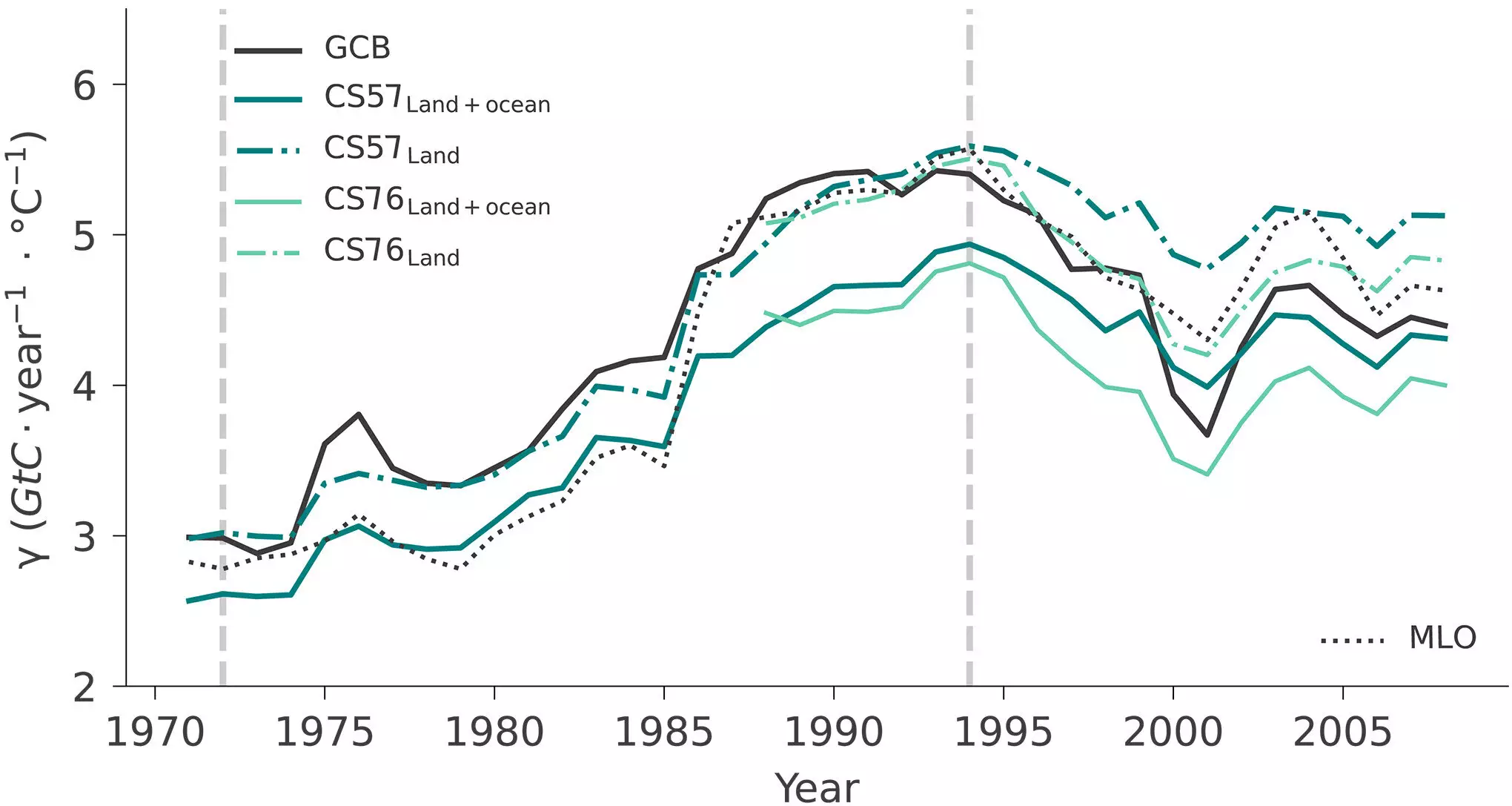Recent advancements in climate research have unveiled intriguing revelations regarding the relationship between carbon dioxide (CO₂) concentrations and tropical temperatures. A study conducted by scientists at the Max Planck Institute for Biogeochemistry and Leipzig University challenges pre-existing narratives about this connection. Between 1959 and 2011, it was found that atmospheric CO₂ levels responded with heightened sensitivity to tropical temperatures—twice as strongly as previously understood. Traditionally, climatologists attributed this phenomenon to increasing droughts and modifications in the carbon cycle due to ongoing climate change. However, this new research posits that extreme El Niño events, particularly those from the late 20th century, may play a more pivotal role than previously thought.
Unpacking the Study’s Findings
The researchers underscore a critical nuance: this increased responsiveness of CO₂ levels is not merely a consequence of a steady anthropogenic trend but is significantly influenced by isolated climate phenomena. The study, published in *Science Advances*, explores the ramifications of El Niño events, which are notorious for triggering droughts and heatwaves in tropical regions. These climatic anomalies impede the growth of vegetation, resulting in decreased carbon sequestration during these episodes. Furthermore, the intense fluctuations in climate during El Niño can prompt ecosystems to release stored carbon back into the atmosphere, exacerbating the rise in CO₂ levels.
The late 1980s and 1990s saw an uptick in such extreme El Niño occurrences, including the particularly severe events of 1982/83 and 1997/98. The research team found that these anomalies fundamentally reshaped the landscape of carbon storage, especially among tropical ecosystems, which serve as significant carbon sinks. By compiling and analyzing extensive climate data, the authors demonstrated that the doubled sensitivity of CO₂ levels to temperature changes stemmed from these severe El Niño events rather than an inherent alteration in the carbon cycle caused by gradual climate change.
One of the most crucial insights from this study lies in its implications for future climate modeling. Historically, scientists have presumed that increased sensitivity of CO₂ emissions to tropical temperatures indicated a systemic, long-term shift in the carbon cycle due to climate change. However, this research elucidates that extreme climate events, such as El Niño, can create ephemeral fluctuations in carbon dynamics that do not necessarily signify permanent transitions within the global climate system.
Dr. Sebastian Sippel, one of the junior professors involved in the study, emphasizes the importance of understanding how extreme climatic phenomena affect carbon cycles. By refining climate models to account for the influence of transient events, researchers can enhance accuracy in predicting future climate scenarios. The findings serve as a reminder of the intricate dynamics at play within our ecosystems and the need for a multifaceted approach in climate science.
Professor Ana Bastos, a senior author on the study, introduces the concept of the ‘slow-in, fast-out’ dynamic of the carbon cycle, referring to how ecosystems absorb carbon slowly over time, only to release it suddenly during extreme events. This understanding is crucial as it suggests that while ecosystems can act as carbon sinks, their capacity to mitigate CO₂ emissions is not linear and can be drastically affected by short-lived extreme events.
This research signals a paradigm shift in how we conceptualize the interplay of various climatic factors. By acknowledging the episodic nature of carbon uptake and release, scientists can develop more informed climate models that account for the unpredictabilities associated with extreme events, ultimately leading to a deeper understanding of future climate trajectories.
The revelations from this pivotal study underscore the complexities of climate systems and the importance of integrating comprehensive data into climate models. As the global community faces the daunting challenges posed by climate change, such research urges the necessity for continuous investigation into the multifarious interconnections between climate phenomena, greenhouse gas emissions, and the health of our ecosystems.


Leave a Reply